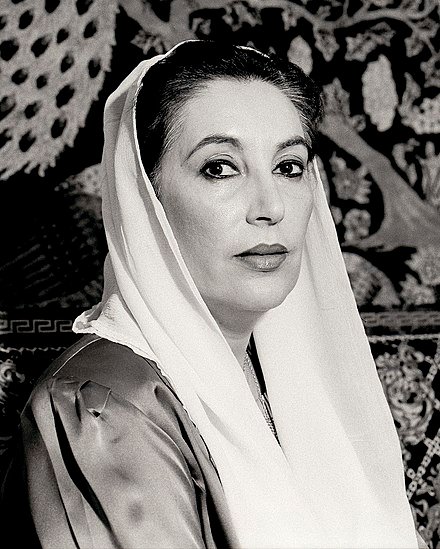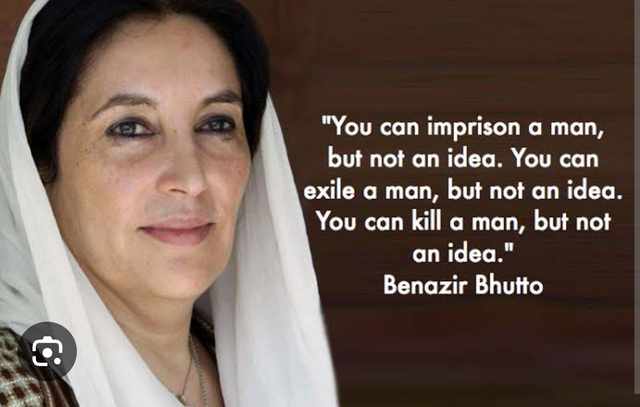Not Just a Leader, But Democracy Itself Was Lost
Democracy is the greatest revenge .
December 27, 2007, a date etched in history like a scar that refuses to heal. It was the day when Benazir Bhutto, Pakistan's first female Prime Minister and a symbol of hope for millions, was assassinated. But was it just the killing of a leader? No! It was the assassination of democracy itself—a ruthless attack on the dreams of a nation.
Benazir Bhutto, oftentimes referred to as the "Daughter of the East," had a vision for Pakistan—a vision of progress, empowerment, and equality. She stood as a beacon of light in a nation struggling with dictatorship, corruption, and terrorism. But that day, as she waved to the crowd in Rawalpindi, the voice of the suicide bomber and hail of bullets silenced not only her but millions of aspirations.
.jpg)
"You can imprison a man, but you cannot imprison an idea," she once said. Still, her death seemed as if the very idea was being imprisoned. This was not just the murder of a leader on that particular day; it was an end to courage, of progress, of possibilities.
In the days before her assassination, Benazir had spoken of threats to her life. She knew she was a target, yet she chose to return to her homeland. Why? Because she believed in something greater than herself. She believed in Pakistan, in its people, and in the power of democracy. "Democracy is the best revenge," she famously said, and those words echoed louder than ever after her death.
 SnapShot
SnapShotHer murder exposed the cracks in the country's political system. It was a brutal reminder that in a land where power often overshadows principles, democracy is fragile. The nation mourned, but amidst the grief was anger—anger at a system that allowed such atrocities to happen, anger at the darkness that seemed to engulf the light of hope.
The aftermath of her death is chaos. Riots erupted; cities burned; uncertainty had begun to loom large over the nation. And yet, it was this emotional and political vacuum, rather than the physical destruction of cities and lives, which shook Pakistan to its roots. Who would take up her mantle? Who would dream in a land where those who do are silenced?
Even today, her legacy remains a question mark. Was her sacrifice in vain? Or will it one day inspire a generation to rebuild what was lost?
She was not only a politician but also a symbol; she was a tragedy when she died, and then there was the lesson- that democracy is never handed out on a platter, but must be striven for, defended and protected each day.
The people of Pakistan are its true strength, she had once said. And perhaps, it is in the hands of those very people to ensure that her dream of a democratic Pakistan does not remain just a dream.
On December 27, 2007, democracy was wounded. But wounds can heal, and scars can become symbols of resilience. The question is: will we let them?
No ,no no.....!
Regard
artist1111
Hi, @artist1111,
Your post has been manually curated!